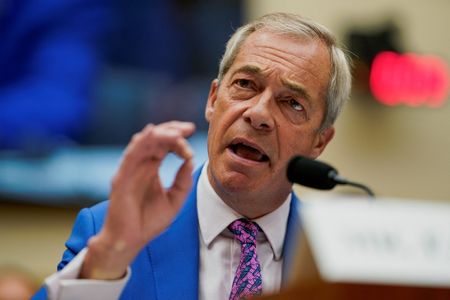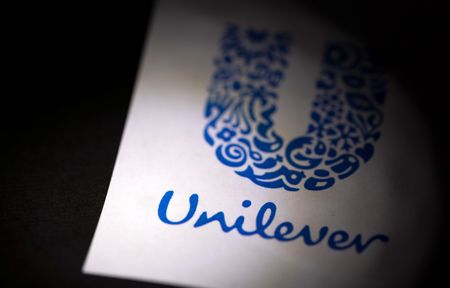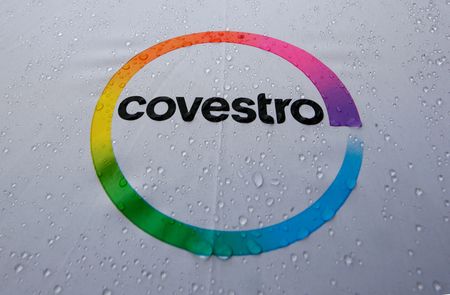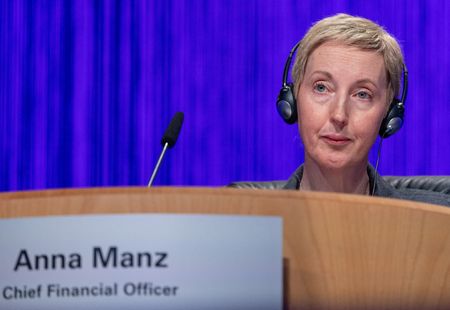By Elizabeth Piper, Alistair Smout and Patricia Zengerle
LONDON/WASHINGTON (Reuters) -Nigel Farage, leader of the populist Reform UK party, took aim at what he called Britain’s “awful authoritarian situation” on Wednesday, urging Washington to persuade the government to put an end to what he described as a clampdown on free speech.
Giving evidence to the Republican-led U.S. House of Representatives Judiciary Committee, Farage stepped up pressure on Prime Minister Keir Starmer over free speech, referring to cases when Britons had been arrested for making comments on social media deemed to incite violence.
He also criticised Britain’s Online Safety Act, which regulates social media companies, saying it was “a road to hell paved with good intentions”.
“It doesn’t give me any great joy to be sitting in America and describing the really awful authoritarian situation that we have now sunk into,” Farage said after being invited to testify by Republican Representative Jim Jordan, the committee’s chairman, at a hearing examining European threats to American free speech and innovation.
“You’ll be doing us, and yourselves, and all freedom-loving people a favour if your politicians and your businesses said to the British government, you’ve simply got this wrong. At what point did we become North Korea?” he said.
Last month, sources said the administration of Republican President Donald Trump was considering imposing sanctions on EU or member state officials responsible for implementing the bloc’s Digital Services Act over complaints the law was censoring Americans.
Farage denied media reports that he had suggested that Trump should sanction nations which restrict free speech. He said Washington should warn Starmer that the Online Safety Act would only cause “serious trade implications” for both countries.
Earlier, speaking to parliament, Starmer said Farage’s decision to travel to the United States to, as he understood it, lobby for sanctions against Britain was a “disgrace”.
“You cannot get more unpatriotic than that,” he said, adding that the 2023 act “protects children from material on suicide, on self-harm and online predators”.
Starmer has said he supports free speech. His spokesperson said the government’s priorities remained tackling antisocial behaviour, knife crime and shoplifting.
TWO CASES
High-profile recent cases that have raised questions in Britain over whether the police should be investigating online comments include the arrest of Irish comedy writer Graham Linehan on Tuesday on suspicion of inciting violence over posts on X about transgender issues, and the jailing of Lucy Connolly.
Connolly, the wife of a Conservative councillor, was jailed for 31 months after she pleaded guilty to inciting racial hatred for a post urging mass deportation of migrants and the burning of their hotels. She has since been released.
Farage described Connolly’s post as an “intemperate tweet” spurred by the killings of three young girls last year, one which she removed some hours later. “I wanted to bring her with me today as living proof of what can go wrong, but sadly the restrictions that have been put on her banned her from making the trip,” he said.
Earlier, the nation’s most senior police chief defended the arrest of Linehan, saying officers were in an impossible position arbitrating between free speech and criminal content.
Farage’s Reform is enjoying a commanding lead in opinion polls before an election expected in 2029.
Farage stole the initiative on immigration over the summer when he unveiled his party’s plans for mass deportations of asylum seekers, forcing Starmer’s government to introduce more measures to try to bring down high rates of arrivals.
(Reporting by Elizabeth Piper in London, additional reporting by Alistair Smout and Muvija M in London and Patricia Zengerle in Washington, Editing by Rosalba O’Brien)














